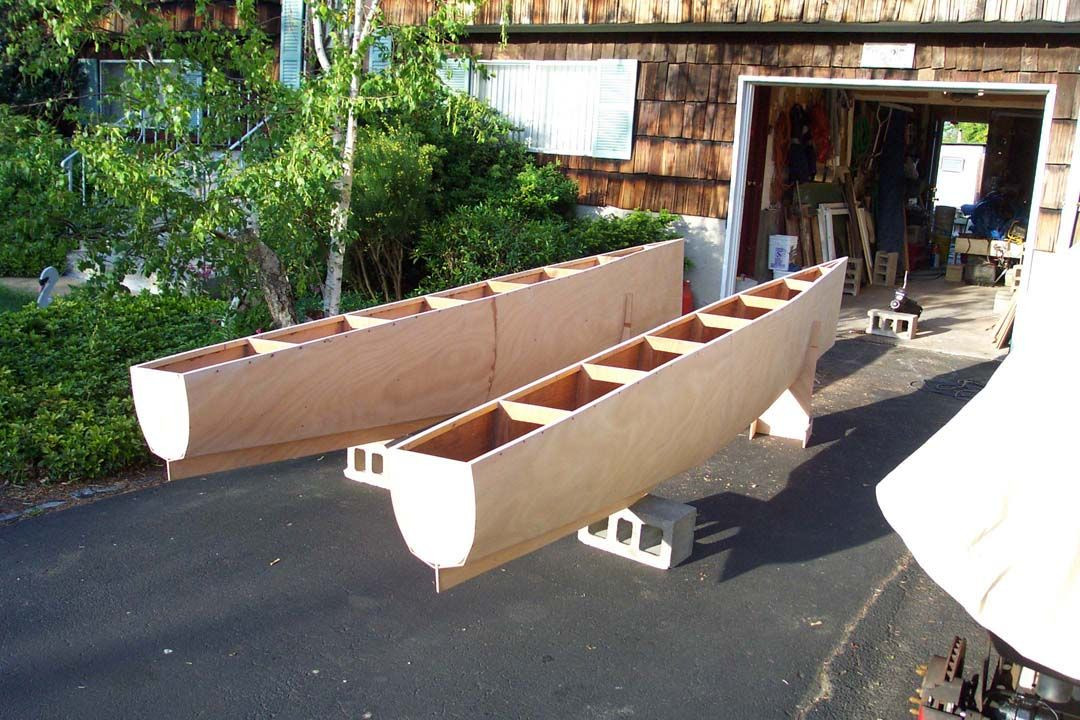
Building a Wooden Houseboat: A Detailed Guide
Dreaming of living on the water? Building a wooden houseboat can be a rewarding and unique project. This guide will walk you through the essential steps, from planning to construction, using detailed diagrams to visualize the process.
1. Planning and Design
Before you dive into construction, meticulous planning is crucial. The following steps will guide you through the initial phase:
1.1 Determine Your Needs and Budget
Start by defining your houseboat's purpose: will it be a weekend getaway, a permanent residence, or something in between? Consider the size, layout, and amenities you desire. Research local regulations for houseboats, and set a realistic budget.
1.2 Design and Sketch Your Houseboat
Create a detailed sketch or utilize software to design the houseboat's layout. Include the size, shape, number of rooms, deck space, and any special features you envision.
1.3 Choose the Right Materials
Select durable, water-resistant woods like cedar, redwood, or marine plywood for the hull and framing. Consider using treated lumber for structural elements. Opt for waterproof materials for interior finishes.
2. Building the Hull
The hull is the foundation of your houseboat. Follow these steps for construction:
2.1 Frame Construction
Build a strong frame using treated lumber or marine plywood for the base. Connect the beams using robust joints like mortise and tenon, or use metal brackets for added strength. See Diagram 1 for a visual representation of the frame construction.
Diagram 1: Frame Construction
[Insert Image of Frame Construction here]
2.2 Planking
Attach planks of marine plywood or hardwood to the frame. Ensure proper spacing and overlap for watertightness. Use marine-grade adhesives and fasteners for a secure bond.
2.3 Sealing and Waterproofing
Apply a sealant to the hull to prevent leaks. Use a high-quality marine-grade sealant and follow the manufacturer's instructions. After sealing, consider applying a layer of fiberglass or epoxy for extra protection.
3. Building the Superstructure
The superstructure is the living area of the houseboat. Construct it with care for stability and comfort.
3.1 Framing and Walls
Build the interior framing using lumber that is treated for moisture resistance. Attach wall panels, insulation, and vapor barrier for a comfortable living space. See Diagram 2 for a visual representation of the superstructure framing.
Diagram 2: Superstructure Framing
[Insert Image of Superstructure Framing here]
3.2 Roof Construction
Choose a roofing material that is waterproof and durable. Common options include metal roofing, fiberglass shingles, or asphalt shingles. Ensure proper ventilation to prevent moisture buildup.
3.3 Interior Finishes
Select interior finishes that are water-resistant and aesthetically pleasing. Utilize materials like waterproof flooring, paint, and cabinetry. Consider incorporating natural light and ventilation.
4. Finishing and Launch
The final steps involve finishing the houseboat and preparing it for launch.
4.1 Painting and Detailing
Apply paint and varnish to the exterior and interior of the houseboat. Choose marine-grade paints and varnishes for longevity and durability. Add details like railings, windows, and doors for a finished look.
4.2 Systems Installation
Install essential systems such as plumbing, electrical, heating, and ventilation. Ensure compliance with local regulations for safety and functionality.
4.3 Launching and Testing
Carefully launch the houseboat into the water. Test all systems and make adjustments as needed. Seek professional guidance for the launch and initial testing.
5. Essential Safety Considerations
Safety is paramount when building and operating a houseboat. Keep these points in mind:
- Comply with all local building codes and regulations.
- Use high-quality, marine-grade materials.
- Install appropriate safety equipment such as life jackets, fire extinguishers, and a first aid kit.
- Learn about navigation and boating safety practices.
Conclusion
Building a wooden houseboat is a challenging but rewarding endeavor. With meticulous planning, skilled craftsmanship, and a dedication to safety, you can create a unique and fulfilling living space on the water. This guide provides a comprehensive framework for starting your houseboat building journey.

0 comments:
Post a Comment
Note: Only a member of this blog may post a comment.